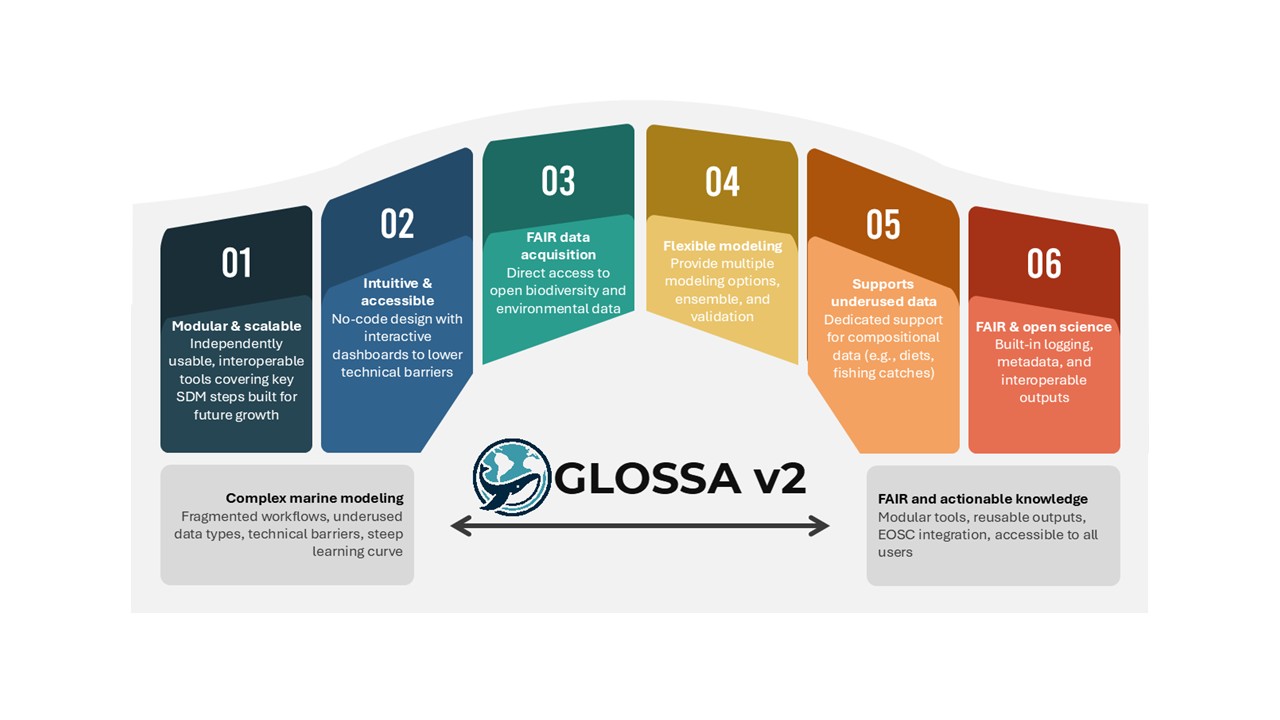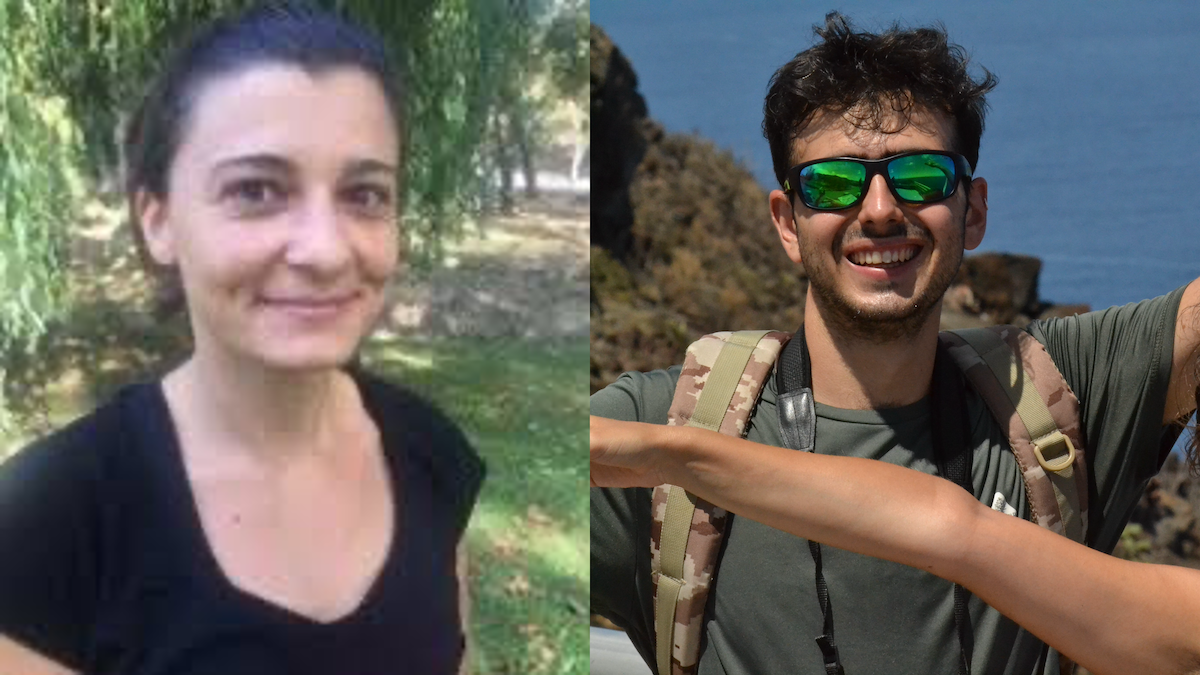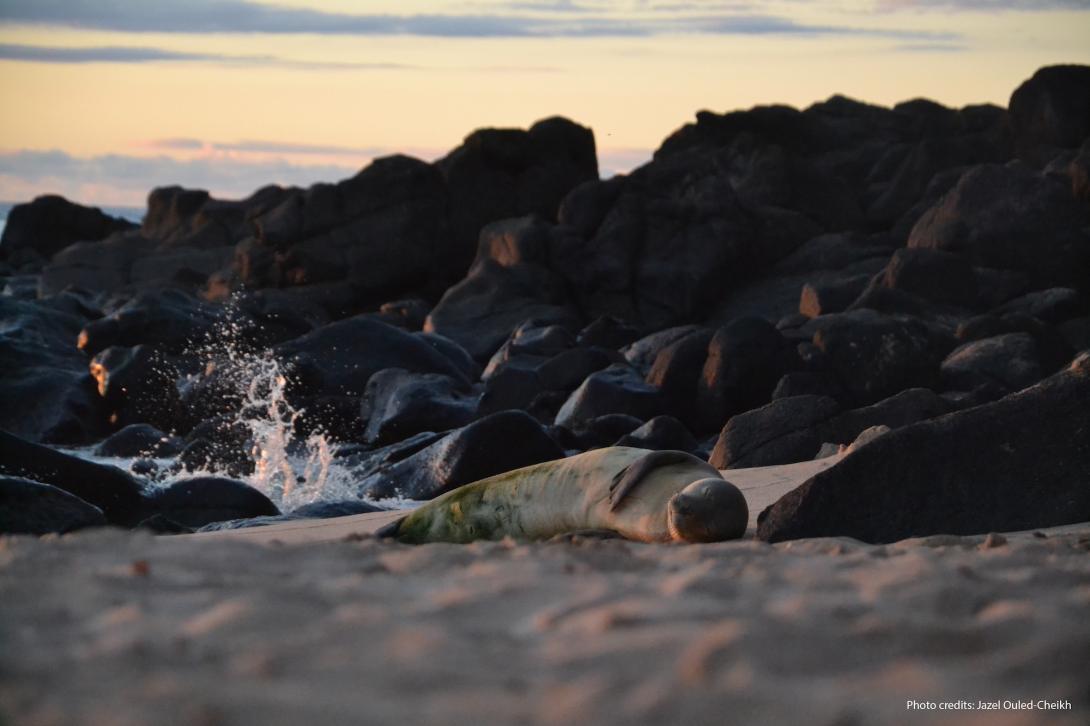Science cluster

Summary
Global change is transforming marine ecosystems at unprecedented rates. Understanding how species distributions shift across space and time is crucial for biodiversity conservation and sustainable resource management. The FAME project will develop GLOSSA v2, an open, modular, and FAIR-aligned toolbox for marine species distribution models (SDMs). Designed for both technical and non-technical users, the framework supports the full SDM workflow - from data acquisition to analysis, modelling and reporting - enhancing accessibility, interoperability, and reproducibility in marine ecological research.

de Ciencias del Mar (ICM-CSIC), Universitat Politècnica de València (UPV), Ecopath International Initiative (EII)
Challenge
Species Distribution Models (SDMs) are key tools for estimating species' responses to environmental variables and predicting their future geographic ranges. However, their application is complex, requiring significant expertise in ecology, data, programming, and statistics, and facing several technical and methodological barriers. There are issues with data uncertainty, fragmented workflows, limited interoperability, and poor reproducibility. Moreover, the increasing availability of open-access marine data presents a challenge in integrating Big Data. These datasets are often heterogeneous, requiring methods to address issues such as sampling bias, spatio-temporal autocorrelation, and limited model transferability. There is a growing demand for SDMs that can incorporate complex and underused data types beyond simple presence/absence, to support abundance data, compositional data (CoDa), citizen science observations, environmental DNA (eDNA), and telemetry tracking.
Solution
FAME will develop a modular and FAIR-aligned framework for marine SDMs called GLOSSA v2. It builds on a successful prototype limited to presence/absence SDMs (GLOSSA). Rather than a single tool, FAME will deliver a minimum viable product (MVP) composed of three interoperable and user-friendly R Shiny modules supporting the entire SDM workflow, specifically for:
- Data acquisition from biological and environmental databases;
- Specific preprocessing for binary, continuous, and compositional data and for marine drivers;
- Flexible modelling and reporting.
GLOSSA v2 will combine a variety of modelling approaches, including simple and non-parametric models, flexible machine learning (ML), and spatio-temporal effects, while automatically generating metadata to ensure full reproducibility.
Scientific Impact
By simplifying complex modelling workflows and expanding SDMs to underused but ecologically meaningful data types, FAME will empower marine scientists to produce more accurate and reproducible predictions of ecosystem change.
Aligned with FAIR principles, all outputs will be registered in trusted repositories such as LifeWatch, ENVRI, Blue-Cloud, and DIGITAL.CSIC, promoting openness and reuse.
Moreover, the framework will be validated through Mediterranean case studies, including invasive species risk assessment using citizen science data and spatial modelling of diet composition for key fish species. Through training events and hackathons, FAME will foster community uptake and long-term sustainability - laying the foundation for a new generation of open, data-driven marine ecosystem modelling.
Principal investigator

Maria Grazia Pennino (PI) is a marine biologist with a PhD in Mathematics and Statistics. Her research focuses on understanding the impacts of global change on marine ecosystems through the development and application of statistical and ecosystem models.
Jorge Mestre Tomás (Co-PI) is a researcher at the ICM-CSIC and a PhD candidate in Statistics and Optimization at the UPV. His research focuses on developing and applying statistical methods in marine ecology, focusing on Bayesian statistics, spatio-temporal modelling and compositional data analysis.

